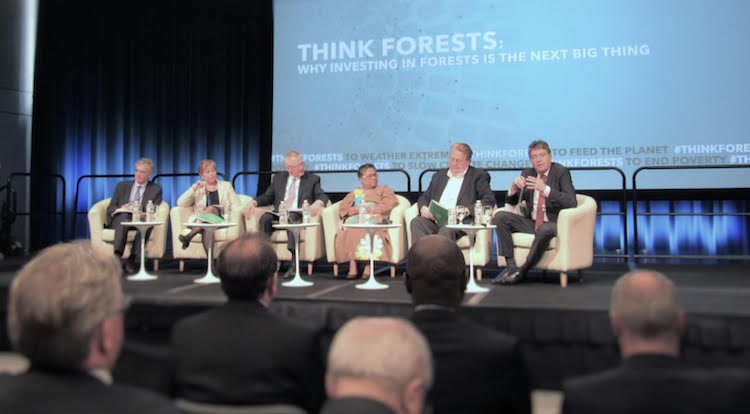By J C Suresh
TORONTO (IDN) – Ahead of the September 21 High-Level Commemoration of the 75th Anniversary of the United Nations, a group of prominent former government and UN leaders are calling on current world leaders to take action to strengthen the United Nations system.
According to the UN2020, in an Open Letter published on September 18, former UN and government officials from around the world are calling for the 75th anniversary to lead to “a stronger, more accountable, inclusive multilateral system.”
Thew UN 2020 Project has been initiated by a coordinating group of civil society representatives. The group is consulting actively with government representatives, UN officials, and other stakeholders. It is administered through the World Federalist Movement, Canada.
In the Open Letter, Mary Robinson, former President of Ireland and former UN High Commissioner for Human Rights, says: “The 75th anniversary of the United Nations should provide an opportunity to do more than look back and celebrate past achievements. Governments must take stock of the current challenges facing the UN. The hard months and years ahead will require determined and principled leadership. Multilateralism is not an option: it is the only path that can deliver a green, sustainable and equitable recovery.”
Maria Fernanda Espinosa, President of the 73rd session of the UN General Assembly and former Foreign Minister of Ecuador adds: “The United Nations is an irreplaceable organization. It has a critical role in leading a concerted, coordinated response to the COVID pandemic, and its recovery process which should allow us to “build back better.” This year’s commemoration of the UN 75th anniversary is a golden opportunity to rejuvenate and retool the organization to build a more effective and inclusive multilateral system.”
Former President of Slovenia, Danilo Türk, notes: “The 75th Anniversary of the United Nations is a reminder of the Organization’s rich experience, its unique convening power and legitimacy, assets that remain vital for the future of the world.”
The UN75 Declaration, expected to be adopted on September 21 by world leaders, mandates Secretary-General António Guterres to report back before the end of the 75th session of the General Assembly “with recommendations to advance our common agenda and to respond to current and future challenges.”
UN reform proposals
While not presently advocating any specific measures, the UN2020 Initiative has identified some core principles and approaches for renewing the UN system. Among others, these include:
A Leading Role for the Secretary-General. An effective preparatory process leading to the UN2020 summit must support and build on the reforms initiated by Secretary-General Guterres, including through his review of the Secretariat’s peace and security architecture, his efforts to follow up on the UNGA’s 2016 resolution on the Quadrennial Comprehensive Policy Review of Operational Activities for Development, and associated management reforms.
Prevention and Sustaining Peace. In addition to management reforms, the Secretary-General has prioritised the need for conflict prevention and sustaining peace. Such an approach to peace and security — one that spans prevention, root causes, peacemaking, mediation, peacekeeping and post-conflict peacebuilding and reconstruction — will require a substantial strengthening of heretofore under-utilized and under-funded parts of the UN system.
One UN. A more coherent and coordinated delivery of UN services at the country level has been a long-agreed goal. Member States would experience a more responsive and efficient system if the range of UN agencies, programmes and expertise were better aligned in support of country needs and demands. This could strengthen the impact of the UN system in the delivery of critical areas of development, environment and humanitarian assistance, among others.
A people-centred UN. The United Nations needs to better incorporate the views of diverse stakeholders in its decision making processes, not only the positions of Member States’ executive branches. Women must be given more equitable representation. Marginalized groups, especially indigenous peoples, must be given a greater voice.
The space for civil society contributions – under threat today in countries worldwide – must be expanded and refined. New forums for parliamentarians and other citizen representatives should be established. Mechanisms for ensuring accountability for upholding human rights commitments must be strengthened.
Regionalism. There is a need for better integration of regional organizations within the United Nations system. Regions can and should be links between that system and individual national governments.
Adequate funding. The funding of the United Nations, including its various funds, programmes and agencies, relies primarily on combinations of assessed and voluntary contributions from member states. The contributions are assessed and allocated using an arcane and opaque set of rules that have generated much controversy while failing to generate adequate funding for the UN’s work.
To meet growing demands, a UN 2020 preparatory process must include a wide-ranging review and reform of the means and methods for more securely providing essential funding of the United Nations system. Numerous viable proposals already exist.
UN Secretary-General António Guterres has made proposals to reform the United Nations since the beginning of his term in January 2017. To improve the delivery of its mandate, the United Nations has made sweeping changes in the following areas:
Since the 2030 Agenda requires bold changes to the UN development system for the emergence of a new generation of country teams, centred on a strategic UN Development Assistance Framework and led by an impartial, independent and empowered resident coordinator.
A new management paradigm for the Secretariat and a United Nations that empowers managers and staff, simplifies processes, increases transparency and improves on the delivery of the Organization’s mandates.
The overarching goals of the reform, according to the UN Chief, are to prioritize prevention and sustaining peace; enhance the effectiveness and coherence of peacekeeping operations and special political missions and move towards a single, integrated peace and security pillar. [IDN-InDepthNews – 18 September 2020]
Photo credit: UN.ORG
IDN is Flagship Agency of the Non-profit International Press Syndicate.

